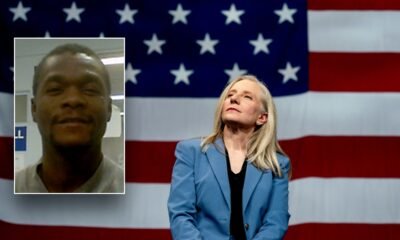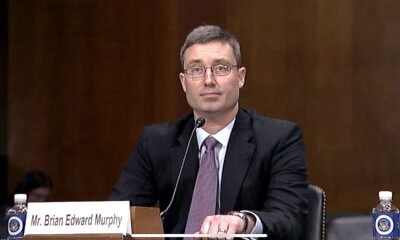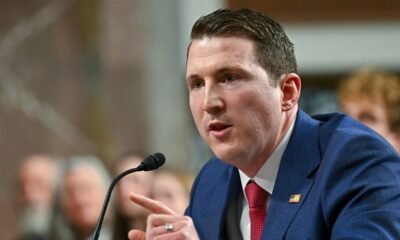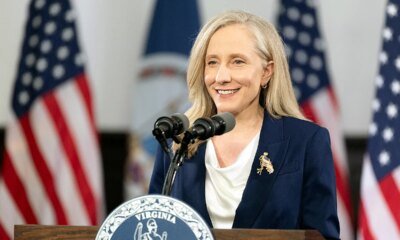INTERNACIONAL
Top Virginia cities in the hot seat as Trump-aligned group demands DOJ probe of DEI mandates

NEWYou can now listen to Fox News articles!
FIRST ON FOX: A Trump-aligned legal group is ramping up its pressure campaign targeting big blue cities violating President Donald Trump’s Executive Orders and federal civil rights law by continuing to embed diversity, equity and inclusion (DEI) into their practices.
America First Legal (AFL) sent three more civil rights complaints to the Department of Justice’s Office of Civil Rights this week requesting it investigate the Virginia cities of Richmond, Alexandria and Arlington for violating Title VI and Title VII of the Federal Civil Rights Act of 1964, as well as Trump’s Executive Orders on discriminatory DEI initiatives, via its city and county programs, hiring, and public services.
AFL argues the cities receive federal grant money and distribute it across their city governments in various departments and for multiple purposes, opening them up to federal scrutiny.
The civil rights complaint letters to the Justice Department follow the agency’s decision to launch an investigation into the city of Austin for similar DEI violations, which was followed by AFL’s first complaint letter to the Justice Department’s Office of Civil Rights earlier this month, asking the agency to investigate Seattle over its allegedly discriminatory DEI practices. AFL filed a complaint against Portland a few days later as well, alleging similar accusations.
TOP UNIVERSITY HIT WITH SCATHING FEDERAL COMPLAINT CALLING FOR PROBE INTO ‘UNSAFE’ AND ‘UNLAWFUL’ DEI AGENDA
Virginia police officers seen walking outside the state capitol building in Richmond, Virginia. (Photo by ROBERTO SCHMIDT/AFP via Getty Images)
«Despite these federal civil rights laws, these jurisdictions openly engage in Diversity, Equity, and Inclusion («DEI») policies in their respective jurisdictions, ordering local departments to implement discriminatory ‘equity’ programs and directives,» an AFL press release states. «Race-based policies do not create justice—they destroy it. As Virginia lurches to the Left, America First Legal will continue leading the fight to ensure that federal funds never support programs that divide citizens, weaken public safety, or erode the rule of law.»
In AFL’s complaint, the legal watchdog accuses the City of Richmond of creating a «government-wide pattern or practice of discrimination» by embedding racial equity in every department. The complaint cites hiring materials embedded with discriminatory themes, mandatory DEI training, Richmond’s Equity Agenda, and the capital city’s establishment of an Office of Equity and Inclusion, which AFL claims to have an aim to empower «only certain people and communities wholly based on race,» rather than merit.
Richmond’s fiscal year budgets reportedly measured department performance by the percentage of employees completing «equity training,» with a stated goal of 100% participation. Meanwhile, AFL also cited Richmond’s «Climate Equity Action Plan» and «Racial Equity and Environmental Justice (REEJ) program,» which the group accuses of funneling resources to only certain racial groups.
CONSERVATIVE MOM SUED FOR CALLING DEI TEACHER ‘WOKE’ CELEBRATES AS DEFAMATION CASE TOSSED
The civil rights complaints against Alexandria and Arlington include similar allegations to those levied against Richmond.

The monument of confederate General A.P. Hill used to stand prominently at the intersection of Laburnum Avenue and Hermitage Road in Richmond, Virginia. However, following a lengthy battle, it was approved by a judge to be removed and was taken down in 2022. The statue is currently in storage at an undisclosed location. Hill’s remains, which were inside the statue, have been re-interred at Fairview Cemetery in Culpeper County, Virginia. (AP Photo/Steve Helber, File)
Alexandria’s Office of Race and Social Equity (RASE), AFL alleges, serves to embed «racial and social equity into all city policies, programs, decisions, and environments» and ensure city policies and programs «are discussed and evaluated through a racial and social justice lens.»
In particular, AFL calls out Alexandria’s Police Department’s development of a «Racial Equity Plan,» which the complaint claims has instructions for the police department «to make efforts in creating a diverse workforce» with the goal of «improv[ing] the demographic representation» through recruitment. A similar «strategic plan» from the city’s fire department reportedly pushes similar hiring preferences on its department as well, AFL alleges.
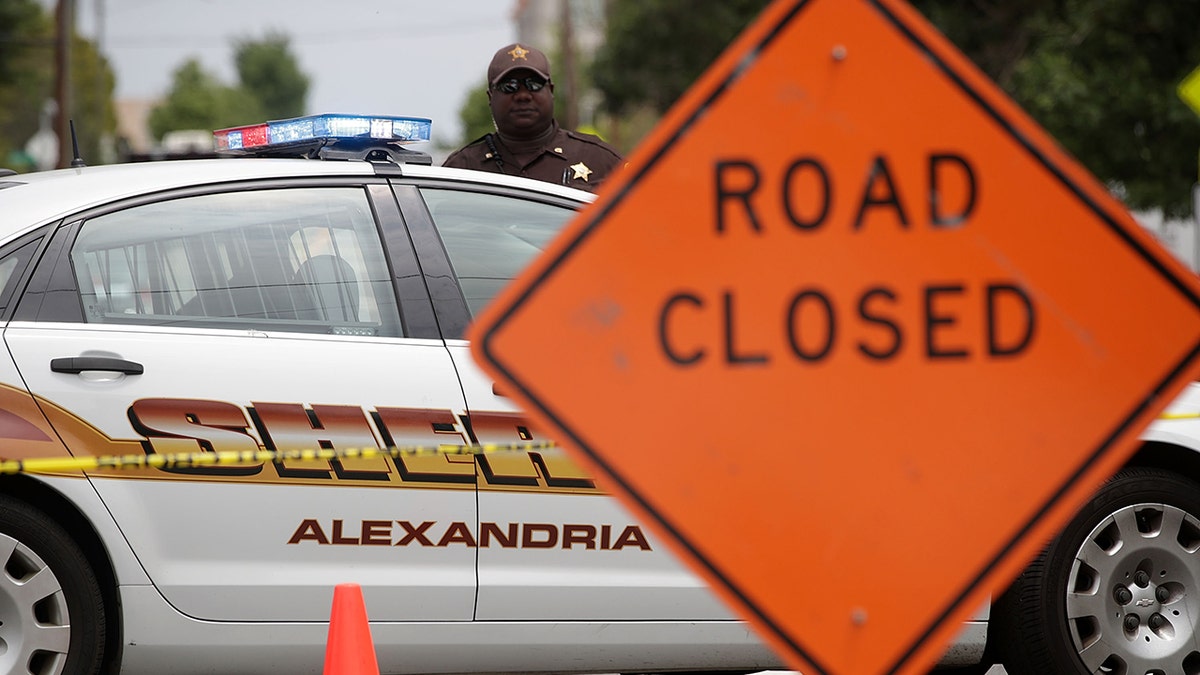
A police officer blocks an intersection in Alexandria, Virginia. (Alex Wong/Getty Images)
Arlington, meanwhile, is accused of establishing an «Affirmative Action Plan,» which AFL says includes «underutilization goals» based on race for specific job groups. These goals include increasing minority representation in the «Senior Administrators» job group from 35.23% to 45%, and minority representation in «Police Officers» from 27.38% to 38%, according to AFL’s complaint.
To prove the real-life consequences of these cities’ policies, AFL’s complaint against Arlington pointed to an incident at a local public school from last year.
CLICK HERE TO GET THE FOX NEWS APP
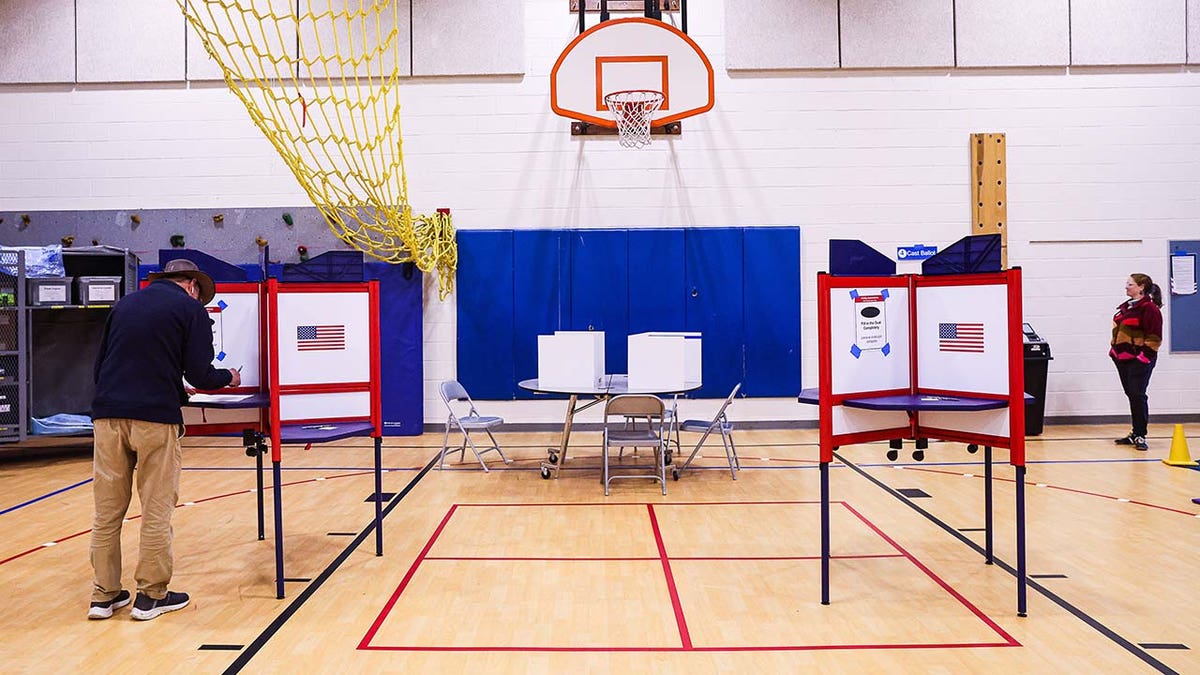
A polling location in Arlington, Virginia. (Valerie Plesch/Bloomberg via Getty Images)
«In September 2024, a male sex offender was permitted to use the girls’ locker room at Washington Liberty High School in Arlington County for months because he claimed to be transgender—a direct result of the County’s policy allowing individuals to use facilities based on their claimed ‘gender identity.’ The individual ultimately exposed his genitals to a 9-year-old girl,» AFL’s complaint to the Department of Justice chronicles. «This incident demonstrates how Arlington County’s race- and sex-conscious policies not only violate federal civil rights law but also compromise student safety.»
Last month, AFL reached a settlement with the City of Philadelphia that began in 2019 over alleged race- and sex-based quotas and «discriminatory» union-membership requirements in public contracting. Under the settlement, the City of Philadelphia agreed to rewrite its «Project Labor Agreements,» which AFL said penalized city contractors that refused to abide by its DEI mandates. Under the settlement, the city was compelled to make previous workforce diversity goals «strictly aspirational» and end «quotas or mandatory minimums.»
dei,virginia,justice department,public sector,state and local
INTERNACIONAL
Mamdani’s response to Trump’s Iran strike sparks conservative backlash: ‘Rooting for the ayatollah’
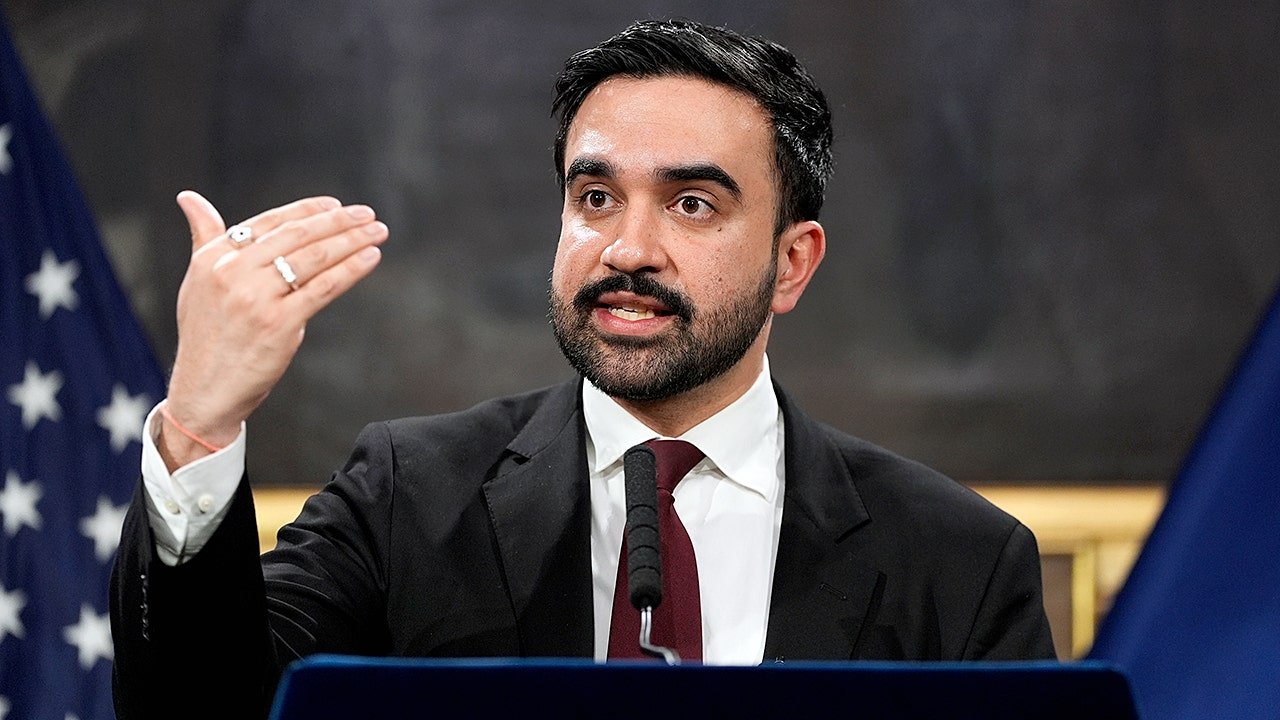
NEWYou can now listen to Fox News articles!
New York City’s socialist Mayor Zohran Mamdani is facing blowback from conservatives on social media over his post condemning the U.S. attack on Iran that led to the killing of Iran’s supreme leader, Ayatollah Ali Khamenei.
On Saturday, as a joint strike on Iran by the United States and Israel was developing, Mamdani blasted the Trump administration’s decision in a post on X that has been viewed roughly 20 million times.
«Today’s military strikes on Iran — carried out by the United States and Israel — mark a catastrophic escalation in an illegal war of aggression,» Mamdani wrote.
«Bombing cities. Killing civilians. Opening a new theater of war. Americans do not want this. They do not want another war in pursuit of regime change.»
New York City Mayor Zohran Mamdani speaks to reporters during a news conference in New York Feb. 17, 2026. (AP Photo/Seth Wenig)
Mamdani said Americans prefer «relief from the affordability crisis» before speaking directly to Iranians in New York City.
«You are part of the fabric of this city — you are our neighbors, small business owners, students, artists, workers, and community leaders,» Mamdani said. «You will be safe here.»
The post was quickly slammed by conservatives on social media making the case that Mamdani’s response appeared sympathetic to Iran’s brutal regime and pointing to his lack of public reaction to the Iranian protesters killed in recent years.
«Comrade Mayor is rooting for the Ayatollah,» GOP Sen. Ted Cruz posted on X. «They can chant together.»
OBAMA OFFICIAL WHO BACKED IRAN DEAL SPARKS ONLINE OUTRAGE WITH REACTION TO TRUMP’S STRIKE: ‘SIT THIS ONE OUT’
«Do u say anything pro American ?» Fox News host Brian Kilmeade posted on X. «do u know any Iranians – ? they hate @fr_Khamenei they celebrate his death, you should be celebrating his death ! hes killed thousands of American’s and just killed 30k Iranians, did u even say a word about that? You are an embarrassment !! Please quit.»
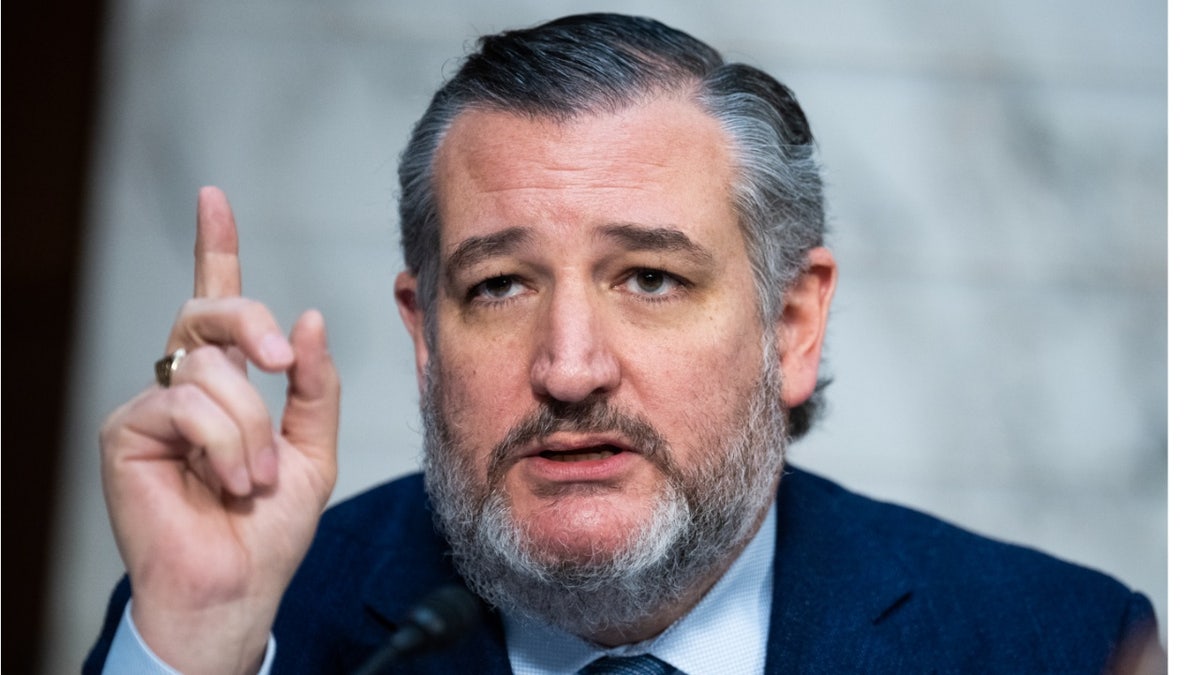
Sen. Ted Cruz, R-Texas, questions Pam Bondi, President-elect Donald Trump’s nominee to be attorney general, during her Senate Judiciary Committee confirmation hearing in Hart building Jan. 15, 2025. (Tom Williams/CQ-Roll Call, Inc via Getty Images)
«I don’t feel safe in New York listening to someone like you, Mamdani, who sympathizes with the regime that killed more than 30,000 unarmed Iranians in less than 24 hours,» Iranian American journalist Masih Alinejad posted on X.
«We Iranians do not allow you to lecture us about war while you had nothing to say when the Islamic Republic shot schoolgirls and blinded more than 10,000 innocent people in the streets. You were busy celebrating the hijab while women of my beloved country Iran were jailed and raped by Islamic Security forces for removing it.
«And NOW you find your voice to defend the regime? No. I will not let you claim the moral high ground. The people of Iran want to be free. Where were you when they needed solidarity?»
CLICK HERE TO DOWNLOAD THE FOX NEWS APP
«How is it that you can’t differentiate between good and evil?» Billionaire hedge fund manager Bill Ackman posted on X. «Why is this so hard for you?»
«It takes a particular kind of audacity, or ignorance, for a city mayor to appoint himself the conscience of American foreign policy while his constituents step over garbage on their way to work,» GOP Rep. Nancy Mace posted on X. «History will not remember his bravery. It will not remember him at all.»
«Iranian New Yorkers are thrilled today and see right through you,» Republican New York City Councilwoman Vickie Paladino posted on X.

Bill Ackman, CEO of Pershing Square Capital Management LP, speaks during the WSJ D.Live global technology conference in Laguna Beach, Calif., Oct. 17, 2017. (Patrick Fallon/Bloomberg/Getty Images)
«When Kuwait, Saudi Arabia, Qatar, Turkey, UAE, Bahrain all support today’s operation eliminating world’s #1 sponsor of terror, but New York City’s Mayor @ZohranMamdani is shilling for Iran,» Republican New York City Councilwoman Inna Vernikov posted on X.
Fox News Digital reached out to Mamdani’s office for comment.
Shortly after Mamdani’s post, it was announced by President Trump and Israeli officials that the military operation resulted in Khamenei’s death.
Israeli leaders confirmed Khamenei’s compound and offices were reduced to rubble early Saturday after a targeted strike in downtown Tehran.
«Khamenei was the contemporary Middle East’s longest-serving autocrat. He did not get to be that way by being a gambler. Khamenei was an ideologue, but one who ruthlessly pursued the preservation and protection of his ideology, often taking two steps forward and one step back,» Behnam Ben Taleblu, senior director of FDD’s Iran program, told Fox News Digital.
war with iran,zohran mamdani,politics
INTERNACIONAL
Iran goes dark amid ‘regime paranoia’, blackout follows Israeli, US strikes on compound
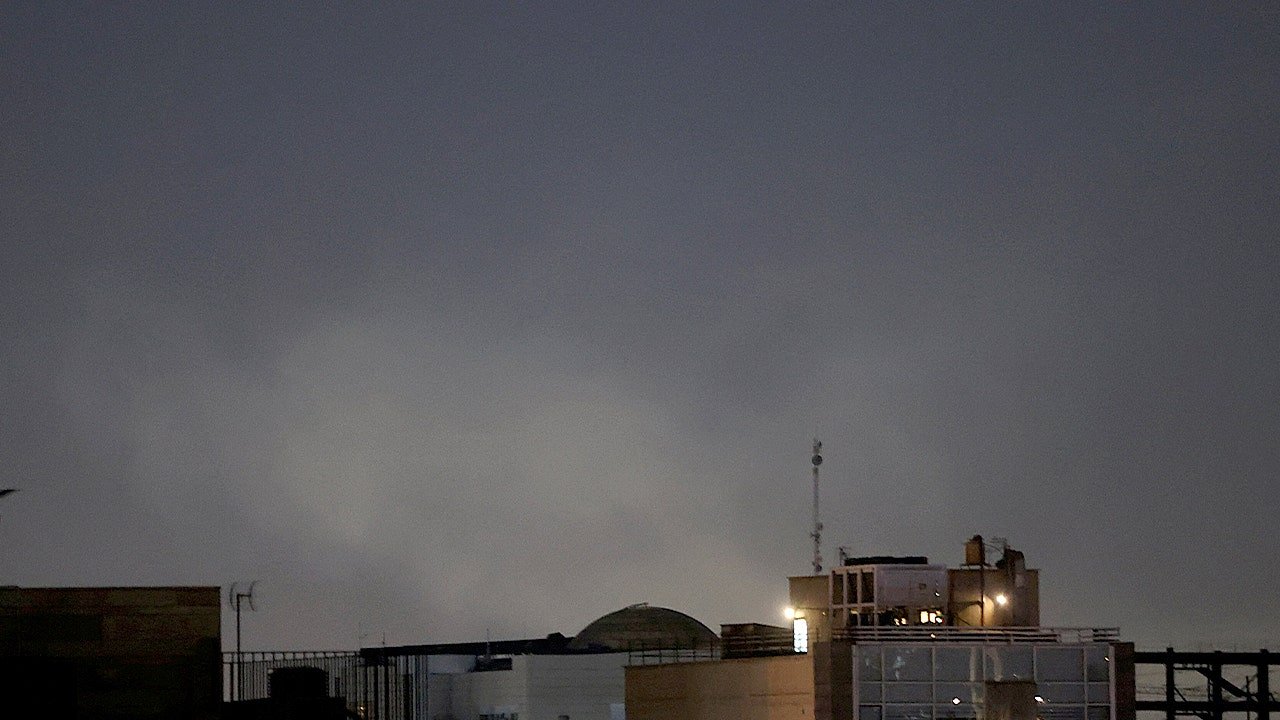
NEWYou can now listen to Fox News articles!
Iran was plunged into an internet blackout Saturday after Israel and the U.S. launched military strikes around the country, according to a global internet monitor.
Within hours of the strikes — which officials said targeted infrastructure and killed dozens of senior regime figures at a compound in Tehran— NetBlocks CEO Alp Toker confirmed connectivity started «flatlining.»
«We’re tracking the ongoing blackout, but our assessment is that this is straight out of Iran’s wartime playbook and consistent both technically and strategically with what we saw during the 2025 Twelve-Day War with Israel,» Toker told Fox News Digital.
«Iran’s internet connectivity is now flatlining around the 1% level, so the original blackout the regime imposed during the morning has been consolidated,» he confirmed.
«The blackout was imposed just after 7:00 UTC, not long after the attack on the Iranian regime compound,» Toker clarified, adding that Iran had been largely offline for approximately 12 hours following the attack.
«At 06:10 UTC, there is the main compound strike; at 07:10 UTC, telecoms disruption starts; at 08:00 UTC, the blackout is largely in effect; and by 08:30 UTC, connectivity flatlines.»
«Wartime national blackouts are exceedingly rare around the world, and it’s something we’ve only really seen at this scale in Iran,» he said.
President Donald Trump monitors U.S. military operations in Iran following an Israeli strike in Tehran on Saturday, Feb. 28, 2026. (@WhiteHouse/X)
In the wake of the attack, dubbed Operation Epic Fury, President Donald Trump said on Truth Social that the «heavy and pinpoint» bombing in Iran «will continue uninterrupted throughout the week or as long as necessary to achieve our objective of PEACE THROUGHOUT THE MIDDLE EAST AND, INDEED, THE WORLD!»
He claimed Iranian security forces and members of the regime’s powerful Islamic Revolutionary Guard Corps were already seeking immunity. He urged them to «peacefully merge with the Iranian Patriots.»
«We are hearing that many of their IRGC, Military, and other Security and Police Forces no longer want to fight and are looking for Immunity from us,» Trump said in the post. «As I said last night, ‘Now they can have Immunity; later they only get Death!’»
Toker argued the timing of the blackout suggested it was imposed deliberately as the regime sought to secure communications amid fears of further targeting.
TRUMP TELLS IRANIANS THE ‘HOUR OF YOUR FREEDOM IS AT HAND’ AS US-ISRAEL LAUNCH STRIKES AGAINST IRAN

TEHRAN, IRAN – FEBRUARY 28: Smoke rises over the city center after an Israeli army launches 2nd wave of airstrikes on Iran on February 28, 2026. (Photo by Fatemeh Bahrami/Anadolu via Getty Images) (Fatemeh Bahrami/Anadolu via Getty Images)
«The Iranian regime will have deployed this new blackout to counter potential cyberattacks during their own military operation, but also to avoid leaking the locations of senior regime figures through metadata and user-generated content,» he said.
«Communications would have been limited, and Iran’s leadership would have proceeded with the assumption that all communications, including satellite or whitelisted networks, carry risks,» he said before claiming that «paranoia would be well grounded at this point, with the blackout a belated but direct response to that.»
«Those participating directly would already know to avoid technology that could betray their whereabouts,» Toker said.
«However, the metadata may well have played a part in determining that the meeting of regime leaders was being held at the Tehran compound, who was in attendance, and at what time.»
DID THEY GET HIM? KHAMENEI’S FATE REMAINS UNKNOWN AFTER ISRAEL-US STRIKE LEVELS HIS COMPOUND

In this handout image provided by the Office of the Supreme Leader of Iran, Iranian Supreme Leader Ali Khamenei addresses the nation in a state television broadcast on June 18, 2025 in Tehran, Iran. (Office of the Supreme Leader of Iran via Getty Images)
Toker revealed that the broader network around the regime leaders and around the compound wouldn’t have had the same strict restrictions.
«This kind of adjacent ‘background noise’ can be correlated against other intelligence sources to build an understanding of activity on the ground,» he added.
«Smartphones are a readily available, almost ‘free’ source of intelligence, and even when locked down, they eventually connect to international online services and generate insights that can be used to pinpoint regime figures,» Toker said.
CLICK HERE TO DOWNLOAD THE FOX NEWS APP
«In the aftermath of Saturday’s strike, this concern will have been high on the remaining Iranian leadership’s minds, especially if they didn’t have a clear and specific understanding of how the meeting was compromised.»
Iran has previously imposed sweeping internet shutdowns during periods of domestic unrest, including nationwide protests in January, which saw thousands killed, often seeking to curb the spread of information and restrict coordination.
war with iran,ali khamenei,bombings,middle east,terrorism
INTERNACIONAL
El Salvador registra más de 25,000 inmuebles inscritos en el primer bimestre de 2026 y mantiene dinamismo en la creación de empresas

En lo que va del año 2026, el Centro Nacional de Registros (CNR) reporta la inscripción de 25,381 inmuebles, una cifra que equivale a $720 millones, según datos oficiales difundidos por el director ejecutivo del CNR, Camilo Trigueros. Este comportamiento refleja la continuidad de una tendencia positiva que se consolidó en 2025, cuando se efectuaron 151,567 transferencias de dominio, generando un movimiento superior a $4,212 millones en el mercado inmobiliario salvadoreño. El incremento interanual en las transferencias de dominio alcanzó el 13%, impulsado tanto por la recuperación de zonas residenciales antes afectadas por la violencia, como por el renovado interés de inversionistas y ciudadanos residentes en el exterior.
Trigueros explicó en entrevista con el Noticiero Hechos, de Canal 12, que el proceso de transferencia de dominio responde principalmente a operaciones de compraventa, aunque también se registran casos de donaciones y herencias. Un estudio interno del CNR identificó que, en años recientes, las compraventas en colonias bajo control de pandillas eran prácticamente inexistentes debido a la falta de compradores y al temor de los propietarios a vender. Actualmente, tras mejoras en las condiciones de seguridad, estas zonas experimentan una reactivación del mercado inmobiliario, con participación de inversionistas nacionales, extranjeros y miembros de la diáspora salvadoreña.
El dinamismo del sector inmobiliario se suma al crecimiento sostenido de la actividad empresarial en el país. De acuerdo con datos publicados por Infobae el 4 de enero, El Salvador cerró 2025 con la creación de 8,373 nuevas empresas y más de 13,000 solicitudes de registro de marca, alcanzando cifras récord para la economía nacional. El crecimiento interanual en la conformación de nuevas empresas fue del 11%, mientras que las solicitudes de marca aumentaron un 18%, con especial énfasis en los sectores de gastronomía y comercio. Entre los factores que explican esta expansión se encuentran la digitalización de trámites, la simplificación de procesos y la implementación de figuras jurídicas más accesibles, como las Sociedades por Acciones Simplificadas (SAS).
El inicio de 2026 mantiene la tendencia al alza. Según datos oficiales, solo en enero se constituyeron cerca de 900 nuevas entidades, lo que proyecta que, de mantenerse el ritmo actual, El Salvador podría superar las 10,000 empresas creadas al finalizar el año. La digitalización de los servicios del CNR permite que el 70% de los usuarios obtenga respuesta a sus trámites en menos de 24 horas, lo que ha fortalecido la confianza de los inversionistas y emprendedores.
La recuperación del sector inmobiliario y el auge en la creación de empresas se explican, en parte, por la percepción de mayor seguridad, la estabilidad macroeconómica y el fortalecimiento institucional. De acuerdo con el balance presentado por Trigueros en medios radiales y televisivos, la mayoría de las nuevas empresas corresponden a sectores de servicios y comercio, con énfasis en pequeñas empresas familiares y emprendimientos gastronómicos. Además, la eliminación de barreras burocráticas y la gratuidad de trámites electrónicos han sido determinantes para el aumento de la formalización empresarial.
En 2025, la demanda de servicios del CNR creció un 11.1%, con más de 130,000 atenciones registradas a nivel nacional. El Instituto Adam Smith de la Universidad de la Florida ubicó a El Salvador en la quinta posición de facilidad para abrir una empresa en Latinoamérica, subiendo quince posiciones respecto a años previos. Las autoridades anticipan que la continuidad de las reformas y la ampliación de los servicios digitales mantendrán el ritmo de crecimiento en ambos rubros durante 2026.
corresponsal:Desde San Salvador, El Salvador

 CHIMENTOS2 días ago
CHIMENTOS2 días agoAlarma por la salud de Divina Gloria tras salir de Gran Hermano: “La internaron directamente en terapia intensiva”

 CHIMENTOS2 días ago
CHIMENTOS2 días agoGinette Reynal dio una rotunda marcha atrás con una decisión que tomó hace dos meses: “No aguanto más”

 CHIMENTOS2 días ago
CHIMENTOS2 días ago¡Titi revolucionó Gran Hermano! Cuáles son las 5 cosas que ya extraña: «Accesorios, pilates, bondiola, auriculares y bailar»

